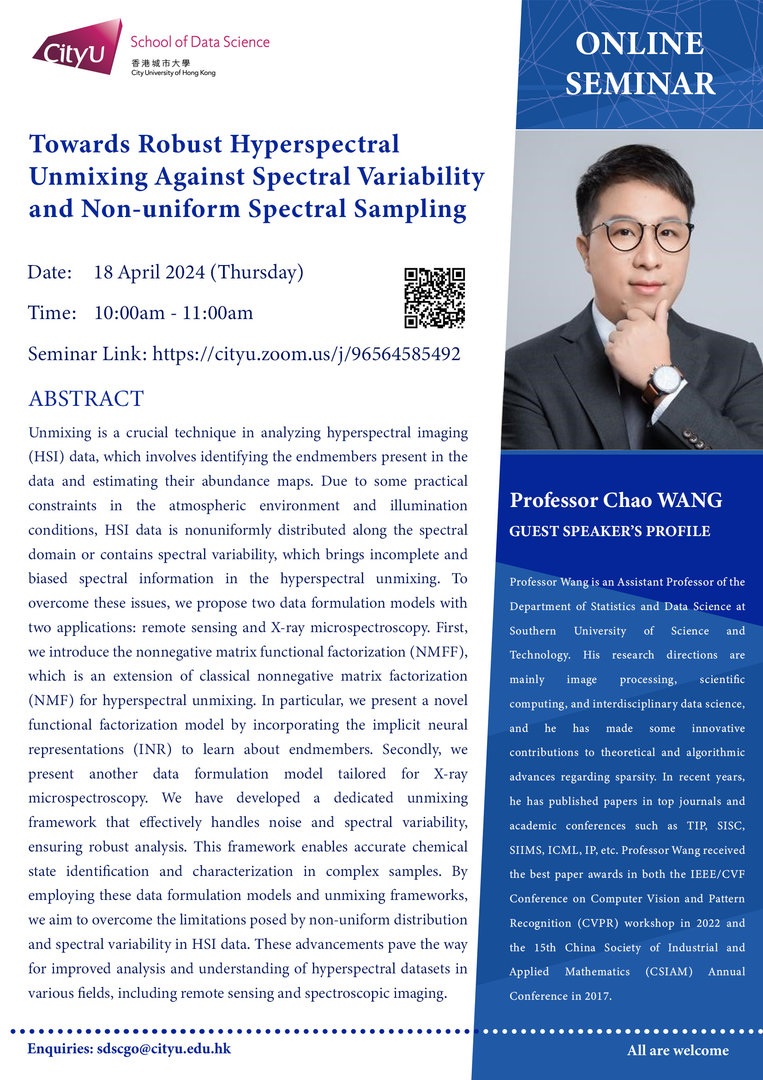
Unmixing is a crucial technique in analyzing hyperspectral imaging (HSI) data, which involves identifying the endmembers present in the data and estimating their abundance maps. Due to some practical constraints in the atmospheric environment and illumination conditions, HSI data is nonuniformly distributed along the spectral domain or contains spectral variability, which brings incomplete and biased spectral information in the hyperspectral unmixing. To overcome these issues, we propose two data formulation models with two applications: remote sensing and X-ray microspectroscopy. First, we introduce the nonnegative matrix functional factorization (NMFF), which is an extension of classical nonnegative matrix factorization (NMF) for hyperspectral unmixing. In particular, we present a novel functional factorization model by incorporating the implicit neural representations (INR) to learn about endmembers. Secondly, we present another data formulation model tailored for X-ray microspectroscopy. We have developed a dedicated unmixing framework that effectively handles noise and spectral variability, ensuring robust analysis. This framework enables accurate chemical state identification and characterization in complex samples. By employing these data formulation models and unmixing frameworks, we aim to overcome the limitations posed by non-uniform distribution and spectral variability in HSI data. These advancements pave the way for improved analysis and understanding of hyperspectral datasets in various fields, including remote sensing and spectroscopic imaging.
Speaker: Professor Chao Wang
Date: 18 April 2024 (Thursday)
Time: 10:00am – 11:00am
Poster: Click here
Latest Seminar
Biography
Professor Wang is an Assistant Professor of the Department of Statistics and Data Science at Southern University of Science and Technology. His research directions are mainly image processing, scientific computing, and interdisciplinary data science, and he has made some innovative contributions to theoretical and algorithmic advances regarding sparsity. In recent years, he has published papers in top journals and academic conferences such as TIP, SISC, SIIMS, ICML, IP, etc. Dr. Wang received the best paper awards in both the IEEE/CVF Conference on Computer Vision and Pattern Recognition (CVPR) workshop in 2022 and the 15th China Society of Industrial and Applied Mathematics (CSIAM) Annual Conference in 2017.